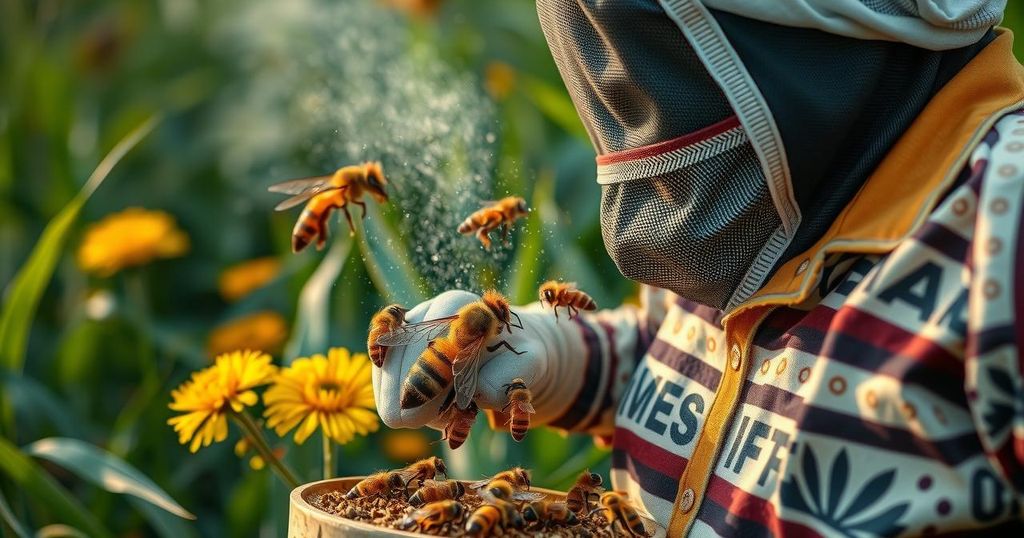Communities in Kenya, particularly in dryland areas, are adopting beekeeping as a sustainable livelihood alternative in response to the impacts of climate change. This practice not only provides economic benefits through honey production but also supports local biodiversity. Conservation experts are facilitating this transition, helping communities become more resilient to environmental challenges.
In response to the challenges posed by climate change, including increased droughts and floods, communities in Kenya are increasingly turning to beekeeping as a sustainable livelihood. The U.N. Environment Program highlights that those residing in dryland areas are particularly vulnerable to the impacts of global warming, rendering traditional agricultural practices unsustainable. Conservation experts have stepped in to support these communities by promoting beekeeping, a practice that not only provides a source of income but also enhances biodiversity and ecosystem resilience. By diversifying their livelihoods, local inhabitants are better equipped to withstand the adverse effects of climate change while contributing to environmental sustainability.
Beekeeping serves multiple purposes; not only does it provide economic benefits through the production of honey and other bee products, but it also plays a crucial role in pollinating crops, thereby potentially boosting agricultural yields. Organizations working with these communities emphasize the importance of adopting climate-resilient practices that can adapt to changing conditions. As a result, beekeeping emerges as a viable alternative, allowing communities in Garsen and beyond to stabilize their incomes and withstand environmental stresses. Moreover, the production of honey has gained recognition for its health benefits, further incentivizing the practice among local populations.
Overall, numerous organizations are committed to equipping local farmers with the necessary training and resources to successfully initiate and sustain beekeeping enterprises. This approach not only empowers the communities economically but also fosters a sense of agency and resilience in the face of climate change. The efforts in Kenya exemplify how local adaptations to global challenges can yield significant benefits for both people and the environment.
Climate change poses significant threats to ecosystems and human livelihoods, particularly in dryland regions where extreme weather events, such as droughts and floods, have become more frequent. Traditional occupations like farming and livestock keeping are increasingly jeopardized due to these adverse conditions. Recognizing this pressing issue, various conservation initiatives are exploring alternative livelihoods for these communities that are more resilient to climate change. One such alternative is beekeeping, which not only provides financial benefits but also contributes positively to the environment by enhancing pollination processes.
In conclusion, the implementation of beekeeping as an adaptive strategy in response to climate change in Kenya demonstrates a promising avenue for building resilience among vulnerable communities. By diversifying income sources and engaging in sustainable practices, these communities improve their livelihood security while simultaneously contributing to environmental health. The support from conservation experts and organizations is critical in ensuring the success of this transition, highlighting the importance of innovative solutions to combat the challenges posed by global warming.
Original Source: www.voanews.com







